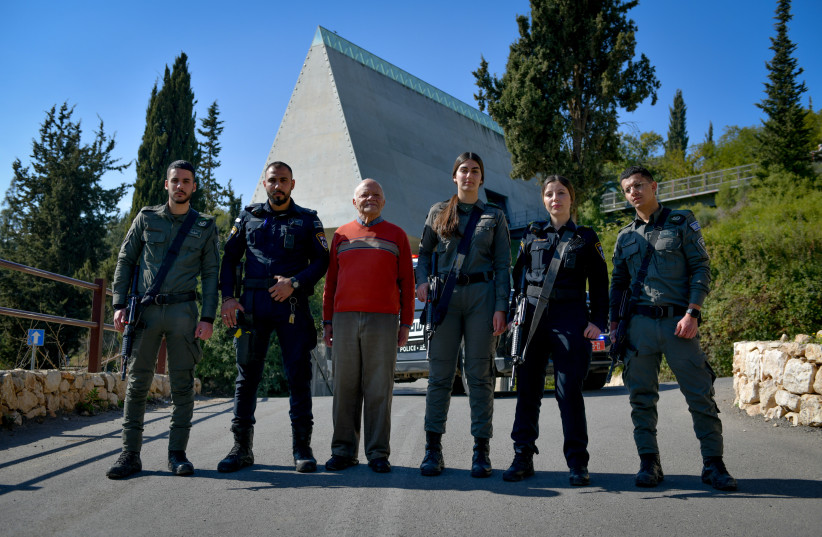As a way of preserving Holocaust history and reinforcing the initiative of Israel Police to serve and protect the Jewish state, Israel Police have, in recent years, begun adopting Holocaust survivors.
In Jerusalem specifically, members of the Border Police battalions sit down with survivors at least twice a month. Officers visit survivors for birthdays and holidays in addition to regular visits to sit and chat. This, according to Israel Police International Spokesperson Master Sgt. Dean Elsdunne, "allows future generations to be exposed to the history of the people they stand for and defend."
"In Jerusalem, the Border Police battalions sit with survivors they’ve adopted and listen to stories that keep the history alive," Elsdunne told the Post. "The officers are able to connect with the survivors on a deeper level, one that binds them when they hear how experiences of hopelessness were overcome by faith."
The unique relationship between survivors and police officers
Israel hosts a variety of nationwide Holocaust remembrance initiatives. One particularly notable one is Zikaron Basalon - a grassroots initiative in which individual Holocaust survivors address up to 50 people – some of whom have never met a Holocaust survivor – in private living rooms or community centers.
However, Zikaron Basalon only occurs once a year. As do high school trips to concentration camps and memorial services.

This initiative by the Israel police is ongoing and constant, serving as a perpetual reminder of "the history of the people they stand for and defend," in Eldsunne's words.
Corporal Yakovi, who made aliyah with his family from Yemen eight years ago, described his experience meeting Holocaust survivor Shlomo for the first time as a spiritual one. He felt it was vitally important to thank Shlomo for sharing his story. “I always had an appreciation for the uniform I wear," he told Shlomo, "but after hearing you today my recognition for our nation reached another level - I’m choking up from the sentiment. Thank you.”
Shlomo told the Border Police that his meetings with them were life-changing. He has been meeting with them regularly for more than three years; he says it has given him a sense of purpose. “We have a country that is ours," he said. "We can never take that for granted. I look around and see our nation's youth in uniform, and I have this feeling of relief because I know that there is someone to trust.”
Eldsunne himself told the Post of his own experience in the Border Police YAMAS unit, when he met Yosef, a Holocaust survivor who lost his family in Poland. "He would bring out the uniform that the Nazis made him wear and he passed it around for us to feel as he told us the horrific stories that he went through," explained Eldsunne.
"He would always finish with how proud he was to be in 'his own country,' and it gave all of us such an important sense of purpose in our duty. All of his children enlisted into the IDF."
In addition to meeting with their adopted survivors, Israel Police will be lighting memorial candles in all police stations throughout the country in honor of Holocaust Remembrance Day.
Greer Faye Cashman contributed to this report.
